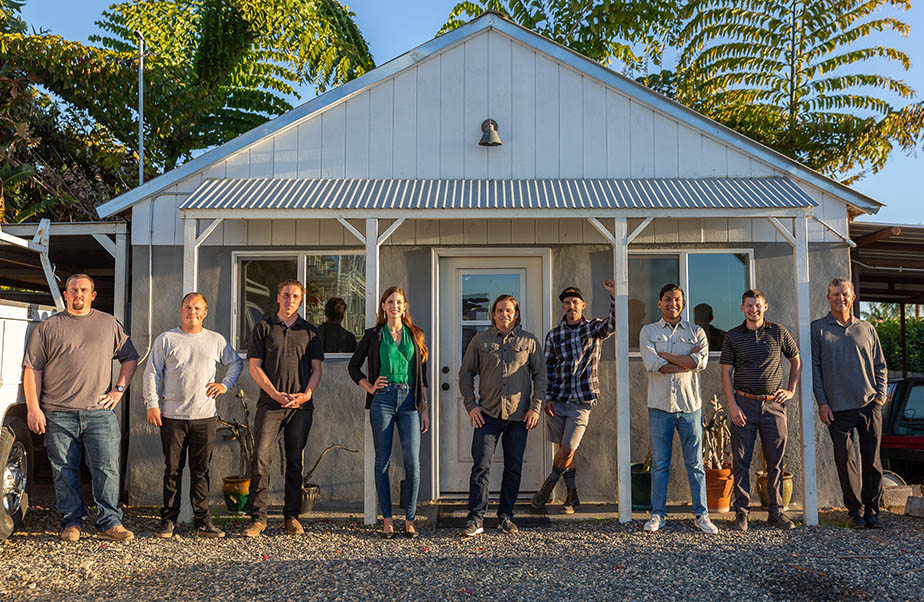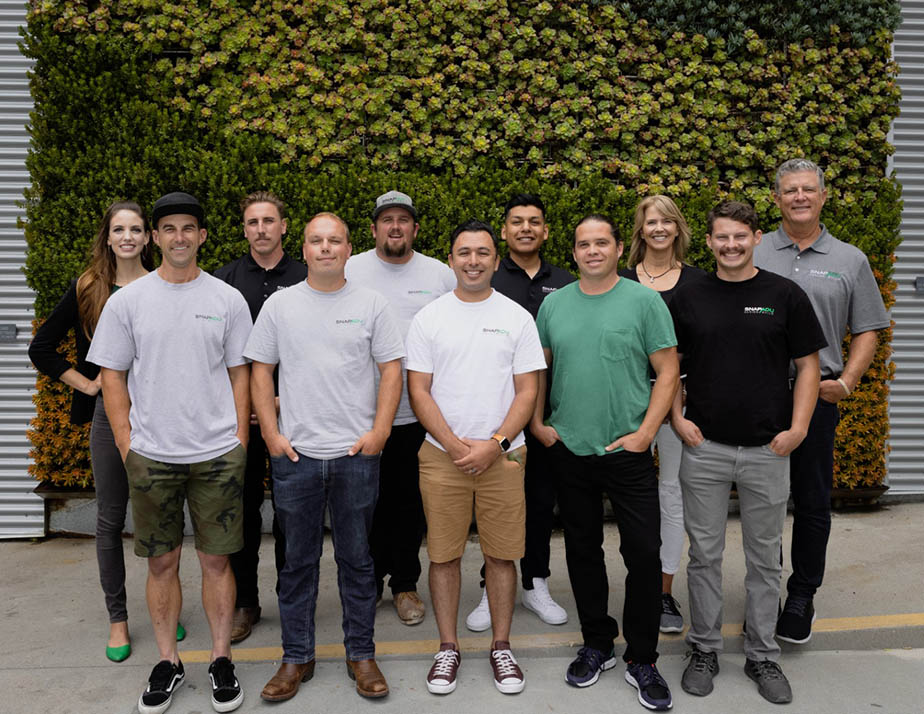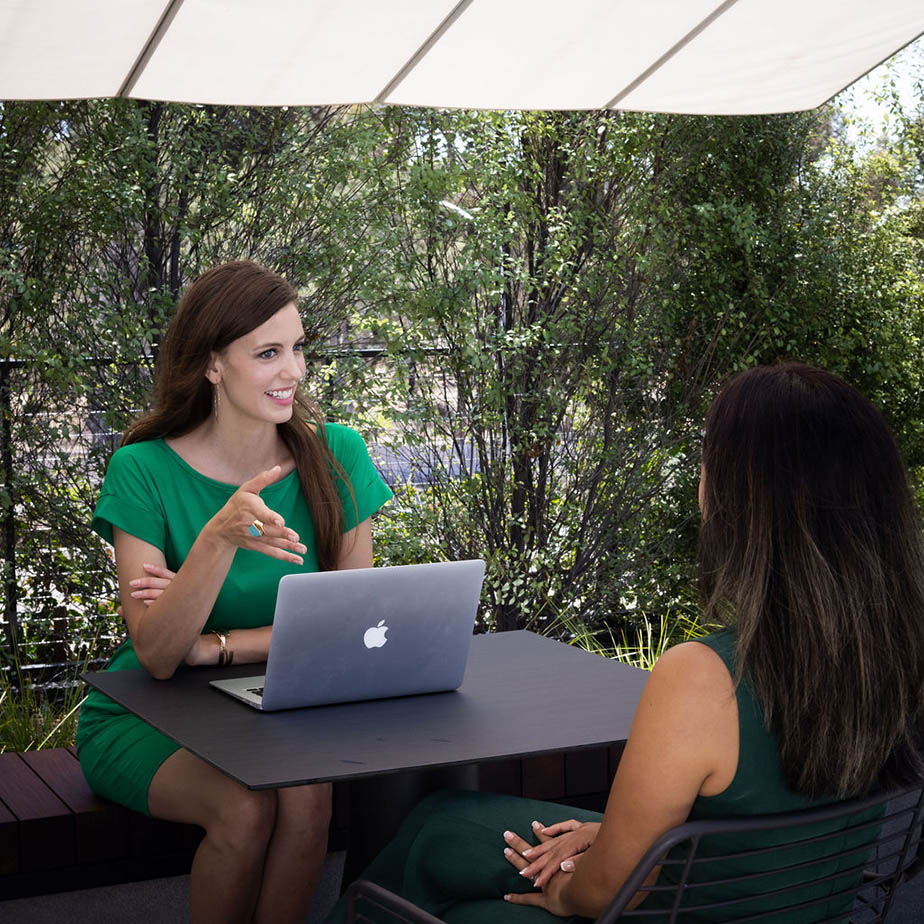
Whitney Hill is the co-founder and CEO of SnapADU, a company in San Diego that specializes in building accessory dwelling units (ADUs), also known as “granny flats.” She and her partner, Mike Moore, have grown the business to $15 million during the pandemic by utilizing technology to streamline the process of designing and constructing ADUs.
SnapADU offers a free assessment to determine the feasibility of building an ADU within a homeowner’s budget. They have also improved transparency in the market by publishing ADU plans and build prices online, including the fully-loaded cost of building an ADU, which encompasses plans, permitting, site work, vertical construction, and any additional work required.
In response to the unpredictable pricing in the construction industry due to supply chain and labor constraints, SnapADU provides a maximum guaranteed price for construction once plan revisions are completed with the city. This allows homeowners to plan confidently.
Whitney and SnapADU have gained national recognition for adopting technology, including project management software enabling homeowners to view details of their project schedule and financials and approve materials and overall budget. Whitney has also been featured on numerous podcasts about construction technology and small business leadership.
SnapADU is also committed to diversity and inclusivity, with over 40% of its employees being women or of minority status. This number exceeds 65% when accounting for independent contractors who work for the company.
Global Millionaire magazine recently caught up with Whitney to discuss her journey as an entrepreneur, and here’s what went down:
Could you please tell our readers a brief background about yourself and how you started your business?
I’m the co-founder and CEO of SnapADU, an accessory dwelling unit (ADU, guest house, granny flat, casita) construction company serving San Diego. SnapADU has become the leading builder of ADUs in San Diego as part of a broader shift in how California thinks about generating affordable housing. Our company designs, permits, and builds 50 ADUs annually and has $15M in revenue.
Before getting involved in residential real estate, I gained strategic & tactical experience as a management consultant for Bain & Company and as an operations manager for an industrial supply distributor.
In early 2020, I learned about accessory dwelling units (ADUs), which are small homes of 400–1200 sqft on residential lots with an existing primary residence. Regulation changes made it far easier to build ADUs on most residential lots. I was excited about more efficient housing as an option for intergenerational living or generating rental income.
Within a month or two of researching ADUs and thinking about how to make an entrance into construction in San Diego, I was working in a coffee shop. I overheard a conversation between two people who were clearly in development. One of them later introduced me to his good friend Mike Moore, co-founder of SnapADU.
We joined forces to focus on getting extremely good at meeting the increasing demand for well-designed and value-oriented ADUs in Greater San Diego. Mike has spent his life in construction, working for both larger commercial and small custom home builders before starting his own business. His experience in small business ownership and construction meshed perfectly with my skills, and together we set out to make a difference in the San Diego ADU market.
What are you currently doing to maintain/grow your business?
We have been painstakingly combing through each step of our business to ensure we have sufficiently defined operating procedures and enacted automation wherever possible. This attention to detail is helping us maintain margins by keeping our costs down. It’s also ensuring that our clients get a consistent and high-quality experience in an industry – residential infill construction – that is historically hit or miss in customer service. We’re also working on establishing concrete points for soliciting client feedback to ensure we keep up with evolving needs while sharing that valuable specific feedback with team members.

Another priority for us is continuing to publish high-quality information about our niche of accessory dwelling units in San Diego. Building this kind of content strengthens our web presence, which helps generate organic leads. Additionally, we gain trust with potential clients by providing a high level of transparency about information like cost and process.
Lastly, we are laying the foundation for future growth by ensuring our systems and technology can support our business as we scale. We are investing in new visualization software to help clients make more informed decisions about their build while streamlining the customer journey.
What form of marketing has worked well for your business throughout the years?
Our strongest form of marketing is ranking highly on SEO to generate organic leads; 70% of our business comes from people finding us on Google searches. We reach this level of success by generating regular content on our topic of expertise, then ensuring those articles are optimized for SEO – at least 1000 words, targeted keywords, and backlinks whenever we can generate them.
We also receive about 20% of our business through job site signs. This is, of course, geographically targeted, which is important to us, particularly in the same neighborhood, since HOAs and other factors can limit the buildability of lots.

What social media platforms do you usually use to increase your brand’s awareness?
We post 3-5 times a week on Instagram and Facebook and at least weekly on LinkedIn. We also post on local forums via Patch and Next Door. We generate our content for the month for Instagram, then decide which additional platforms should also have that information published.
On Instagram, we have been pushing to create more Reels, which are shown to an audience outside of followers. We typically reach 3X the views we can with a regular post. In our industry, there are not yet many other players focused on “edutainment,” so we are exploring that avenue.
What is the toughest decision you had to make in the last few months?
The toughest decision we’ve had to make in the past few months is when to begin reorganizing our sales and pre-construction process. For us, this is a large investment of money and team resources, as we have to staff these initiatives appropriately while not letting our operational goals slip.
So deciding when to pull the trigger is difficult; we know we need to undertake the change, but we are running at top speed to keep up with our growth as it is. It’s tough ever to feel fully ready for a large undertaking like that, even though it is a necessary step and a good decision to support future growth.
How has your business been affected by the COVID-19 pandemic?
The demand for our product has gone up. Especially in light of COVID, families are looking for new living options that keep loved ones closer to home. ADUs offer families flexibility since ADUs are versatile and meet the demands of evolving intergenerational lifestyles.
How have you adapted your business operations in response to COVID-19 and its associated impacts?
COVID has opened opportunities for working smarter. Our business was created entirely during the pandemic. For us, it was a unique opportunity to take advantage of tools to help assess properties remotely. Traditionally, contractors would make site visits early on. We use satellite imagery, zoning, and parcel information to learn what is buildable on the lot. Since COVID, people are much more willing to work remotely, and we’ve learned that we can push industry norms in this new environment.
Additionally, all our team – except for field crews – works remotely. We no longer have an office, but you can find many of us connected via Zoom throughout the day. We’ve embraced technology that makes it possible to work from anywhere, even in the historically site-based construction world.
What are some of the most important lessons you learned from this pandemic?
The biggest challenge has been handling escalating material and labor prices. We don’t want our clients to feel like we are doing a ‘bait and switch’ with them, but unfortunately, long project timelines mean that pricing can move quite a bit from when they sign a proposal to when we start building. We try to mitigate volatile pricing by having several checkpoints on price along the way to keep them informed and to ensure the reasons for any increases are transparent.

What do you hope to see happen in the near future for small businesses all over the world?
I hope to see more strategic partnerships that enable people to do what they are best at.
Many small business owners started out in their industry because they loved the hands-on part of the job. By the time they are running a small business, most of their day to day is filled with tasks that don’t excite them: administrative minutiae, worrying about how to get more people in the door, trying desperately to make margins.
Meanwhile, a host of other people out there went to school for business administration and LOVE that part of small business… yet they are busy looking around for that “perfect” new idea. Innovation doesn’t have to be flashy or new or exciting. It can be just as impactful to run an extremely efficient operation and focus on an underserved niche.
Partnering with someone with a complementary set of skills can help you bring a business to the next level at multiple of the speed you could have done alone. And it feels like such a life hack to focus on the exciting parts, while your partner focuses on the parts that they love (but you really despise).
What advice would you give to a newbie Entrepreneur setting up a new business in this pandemic?
Focus on your niche. Get extremely good at serving your ideal client. Turn people away if you must, which feels scary at first. Serving a smaller group of people well will lead to better reviews and referrals while also allowing you to really dig in and understand that group and provide value to them. All of this has the effect of building a strong core business from which you can grow.